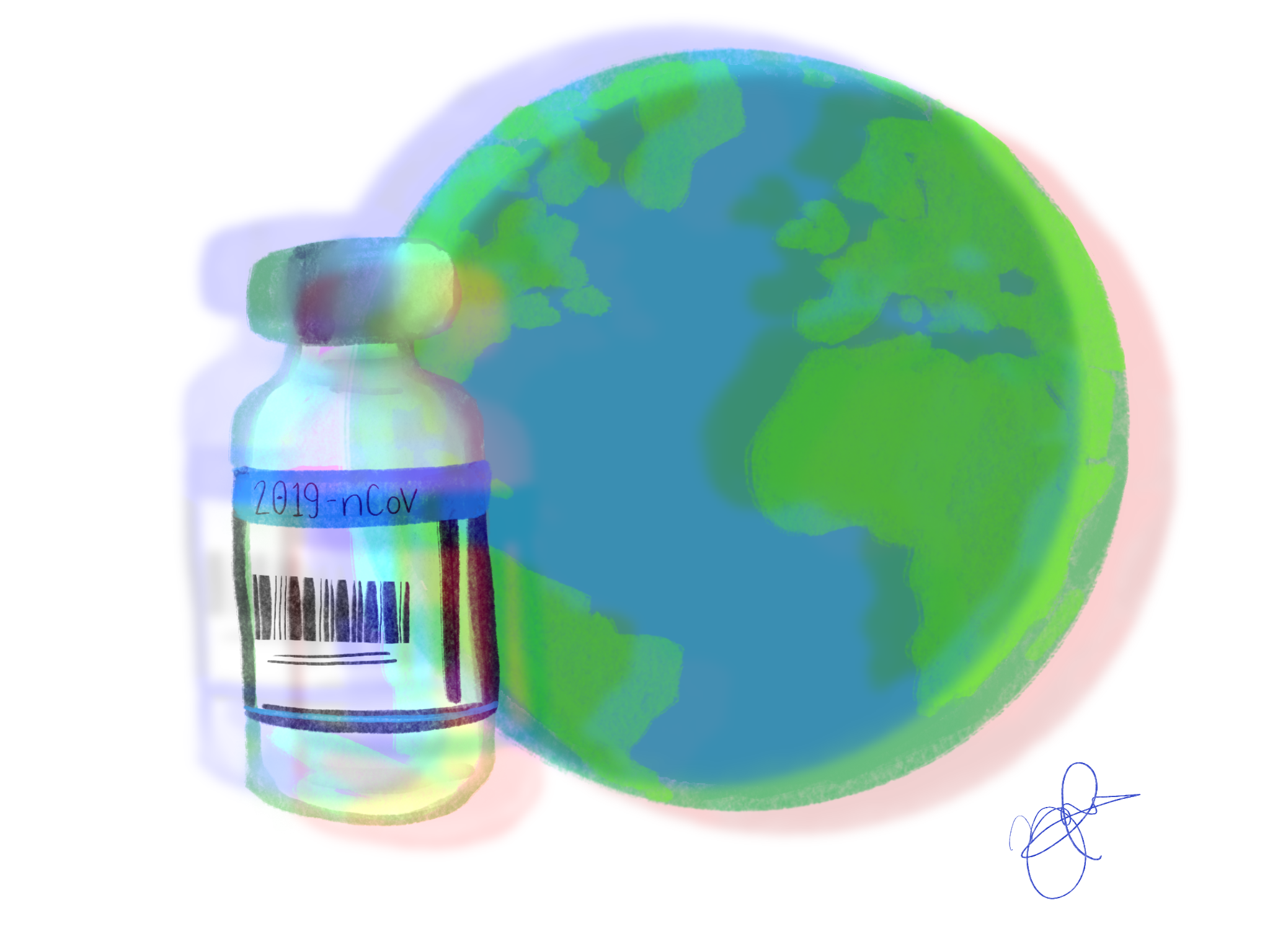Yale experts comment on threat of COVID-19 variants and staggered immunization rates
As different countries grapple with vaccine distribution challenges and new coronavirus variants are identified, scientists emphasize the importance of swift vaccination campaigns to prevent the emergence of threatening virus variants.

Zoe Berg, Photo Editor
With a rise in the number of new coronavirus variants around the world, Yale scientists have expressed increasing concern about how the mutations they carry could threaten people’s health and upend current immunization plans.
To date, SARS-CoV-2 variants notably different from the virus first sequenced at the beginning of the pandemic have been identified in the United Kingdom, South Africa and Brazil. Researchers estimate that the U.K. variant could be 40 to 70 percent more transmissible than other versions of the virus. Considering how many challenges currently stand in the way of vaccination campaigns in the United States and other countries, some experts in Yale and New Haven fear that if people are not immunized quickly enough, this could allow for new, potentially more dangerous variants to spread.
“The fact that you are seeing similar types of stories develop in many different places I think just raises the specter that that is going to be a problem for not just one particular vaccine, but probably multiple vaccines, not just in one or two countries, but in multiple countries across the world,” Luke Davis, an epidemiologist at the Yale School of Public Health and a critical care physician at the Yale New Haven Hospital, told the News.
After many months of intense scientific research to develop safe and effective COVID-19 vaccine candidates, the thought that these vaccines could have no power against these variants is harrowing for many experts — including Thomas Balcezak, chief medical officer for the Yale New Haven Health System.
In a Jan. 20 press conference, Balcezak pointed out that some scientists have suggested that vaccination could cause selection pressures that could force the coronavirus to mutate. If vaccines are unable to immunize an entire population against the virus, the variants that are most capable of evading the immunity conferred by the vaccine will thrive. This could potentially lead to the proliferation of even more cunning variants, he explained. In countries where vaccinations have not yet begun — such as Ethiopia — this is especially concerning.
To avoid that scenario, efficient vaccine distribution is essential.
“The faster we can get our population vaccinated … the faster that we can stop any of the strains, or any new strains, from taking hold within our population,” Balcezak said.
According to Balcezak, approximately 94 percent of the COVID-19 vaccines that have arrived at the Yale New Haven Health System have been administered. But the same cannot be said of many health care systems across the country and the world.
Chair of the YSPH Department of Epidemiology Albert Ko pointed to the situation in Manaus, Brazil, as an example of what happens when the spread of coronavirus is left unchecked and vaccine distribution is lacking.
Ko explained that based on a study of blood donors from Manaus published in the journal Science on Jan. 15, scientists estimate that 76 percent of the population in the Brazilian city had been infected with COVID-19 by October 2020. Ko attributed the severity of this first wave in Manaus to a lack of public health prevention measures like mask-wearing and physical distancing.
Since the middle of December, the city has been ravaged by a second deadly wave of the virus, Ko explained. However, much remains uncertain about why there was such a disastrous resurgence in a community that was already nearing herd immunity status in October.
Ko cited an article in The Lancet that proposed possible reasons for the disaster. The first was that the prevalence of COVID-19 in Manaus could have been overestimated in October. The second postulated that the protection conferred by antibodies in individuals who had been infected in the spring and fall had waned by December.
The third potential reason was that the P.1 variant — first detected in a group of Brazilian travelers in Japan and identified in Manaus on Jan. 12 — had a higher inherent transmissibility, contributing to the peak in cases in the Brazilian city.
“[Manaus is] having a tragedy unfold,” Ko said. “Hospitals are overrun. People immediately died because the hospital ran out of oxygen.”
Even more pressing is the question of whether current vaccines, like those from Moderna and Pfizer, will confer protection against new variants, Ko said.
He referenced a pre-print study published to BioRxiv on Jan. 25, where researchers examined the ability of the Moderna vaccine to produce an antibody response against the U.K. and South African variants. In the study, which has not yet been peer reviewed, the scientists found a two-to-six-fold reduction in the immunization power of the vaccine against the South African variant.
There is, however, a silver lining for the Moderna and Pfizer vaccines. Since both pharmaceutical companies are able to engineer the mRNA sequence contained in the vaccine within their labs, theoretically, it could be possible for that sequence to be adapted to target the one within new versions of the virus, Balcezak explained.
“If they need to be changed because the virus mutates and that mRNA sequence mutates, that change can be done very rapidly,” Balcezak said.
However, the scientists said that since there are many other vaccines being distributed across the world, all of them will have to be evaluated to see if they could immunize against these novel variants.
According to Bloomberg, more than 152 million doses of COVID-19 vaccines have been administered worldwide.
Sydney Gray | sydney.gray@yale.edu
Maria Fernanda Pacheco | maria.pacheco@yale.edu








